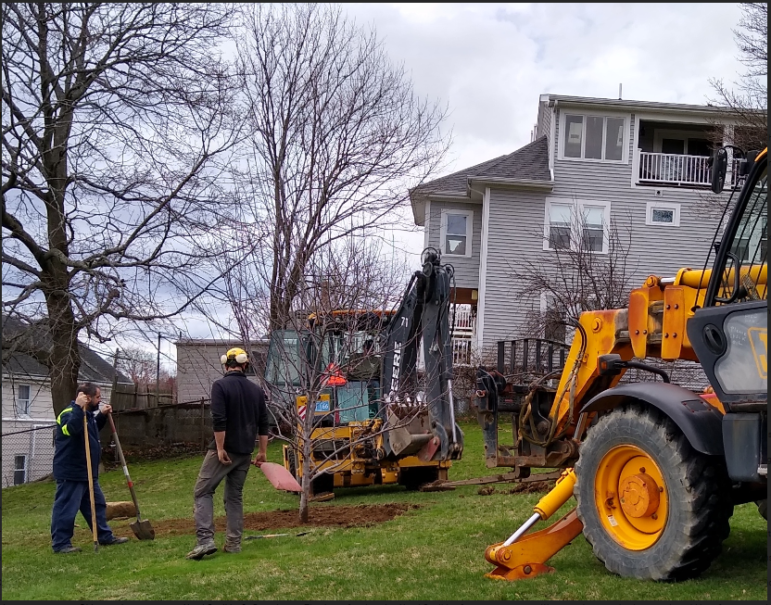
The following piece was provided by Trees for Watertown:
On March 31st, tree advocacy organizations from nine cities and towns throughout Eastern Massachusetts came together for the first time to discuss ways to reverse the concerning loss of protective urban tree canopy in our region.
Organizations joined the conversation from larger cities such as Newton, Medford and Arlington, mid- sized cities such as Watertown, Lexington and Wellesley, and the smaller towns including Bedford, Weston, Maynard, and Groton. A representative from Boston’s tree advocacy organization Speaks for the Trees Boston was also present.
A chief takeaway for all was that while the political environment and availability of resources vary widely, tree issues faced in these disparate communities have many similarities. For example, as cities and towns have grown in recent decades with automobile-based development, asphalt and cement have replaced trees and open land, creating “heat islands” in many towns, areas that are significantly hotter than surrounding green areas, especially at night.
Cities, too, have seen adverse impacts as uneven municipal policies and development patterns have encouraged neighborhood differences in tree coverage. Disadvantaged areas, with fewer trees, experience higher average summer temperatures, while affluent neighborhoods, more often retaining their trees, are cooler. These differences contribute to significant adverse impacts on health and quality of life in less affluent areas.
Expanding the protective tree canopy in cities has become more urgent in recent years due to climate change. Many municipalities are now embracing increased tree cover as a cost-effective way to mitigate warming, but efforts have typically been town-by-town.
Meeting organizer Charlie Wyman, a Lexington tree activist, noted, “The environmental and social justice effects of a shrinking urban forest don’t stop at the town line, they are regional. By sharing knowledge and coordinating our efforts we can have the greatest impact.”
The meeting revealed that approaches to addressing urban forestry issues vary widely by community. Newton, Bedford, Arlington, and Lexington have full-time tree wardens and city-appointed tree committees to advise and assist the tree warden. Other towns have an independent citizen advocacy group and may have only a part-time tree warden. Watertown has no appointed tree committee but has a long-standing citizen advocacy group, Trees for Watertown, and a full-time forestry supervisor-tree warden position.
Many cited a municipal tree ordinance as an important tool for managing tree cover. The purpose of a tree ordinance is to make tree preservation an integral part of planning for public works projects and private commercial developments, and to increase transparency in tree taking and management decisions.
Newton, Lexington, Arlington, Cambridge, and Somerville all enacted tree protective ordinances within the past 15 years, Medford passed one just last year, and Boston is developing one now. Watertown was in the minority of municipalities participating in this meeting that have no tree ordinance.
Beyond ordinances, participants reported a range of successful programs to encourage the public to plant and preserve trees, especially in private yards. These include “Back of Sidewalk” programs, where municipal trees are planted in homeowners’ front yards in return for specific homeowner commitments to tree care, and initiatives like Arlington’s Community Tree Program, where trees are sold to homeowners at a subsidized price to plant on their property wherever they want.
Participants also described Adopt-a-Tree programs, where residents sign up to monitor and care for public shade trees, and a variety of public education efforts designed to build strong public support for increased tree cover.
Trees for Watertown’s President Libby Shaw is excited about the opportunity this regional group provides. “Our areas of focus may be different but we’re all trying to protect and expand the benefits that come from a healthy urban forest. Trees are a common good,” she said. “Working together we can find many solutions to make sure Eastern Massachusetts is a healthy, green, and equitable place to live in the decades to come.”